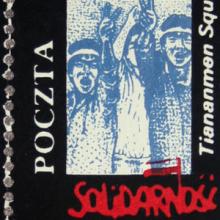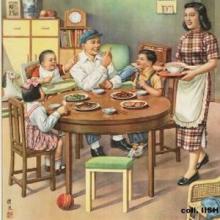Revolutions
Soviet Response to the Romanian Uprising
In mid-December 1989, demonstrations erupted in Timisoara, quickly spread to other parts of Romania, and developed into a full-scale revolution, leading to the execution of President Nicolae Ceausescu and his wife on December 25.
Short Teaching Module: Letter by the Bratislava Five
This teaching module addresses a protest in Bratislava during the summer of 1989 aimed at commemorating the anniversary of the Warsaw Pact invasion by publicly laying flowers at various locations in Slovakia where citizens had been killed in 1968.
Short Teaching Module: Czech Independence Day Speech
The dramatic changes in Eastern Europe happened so rapidly and over so broad an area that making these events understandable for students can be a challenge. This teaching module uses a landmark speech by Vaclav Havel as a means to unpack the rapid events of 1989.

Short Teaching Module: Remembering Tiananmen Square
Although China is located quite far from Eastern Europe, dissidents in Eastern Europe identified with the struggles by opposition leaders in China and used images of the 1989 Tiananmen Square uprising to reinforce memories of resistance in Eastern Europe.
Southeast Asian Politics: Song, Philippine Feminist Movement
This song, entitled Maria and sung in Tagalog (a Philippine language), challenges cultural constructions of women as passive, as sex objects or domestic cooks. “Maria” is used as a generic term for woman. The song identifies heroines such as Lorena Barros, Gabriela Silang, and Tandang Sora.

Short Teaching Module: Chinese Propaganda Posters
Visual images provide valuable material for the exploration of childhood, youth and history.
Hungary announces 1956 is a "People's Uprising"
On 23 June 1988, the Hungarian Socialist Workers' Party (Communist) Central Committee established a committee to analyze Hungary's political, economic and social development during the preceding thirty years. The issue of the 1956 Soviet invasion of Hungary became a political flashpoint.
Louis XVI’s Reply to the Parlement of Paris (1788)
The fiscal and administrative reforms issued as royal decrees in the autumn of 1787 were opposed vociferously by the Parlements. To force their registration, the King held a "royal session" on 19 November 1787.
France, The Gods Are Athirst
One of the most widely–read authors of the late nineteenth century, Anatole France (1844–1924) saw the humanity of even the most notorious revolutionary figures such as Jean–Paul Marat. Yet, dedicated to the principles of 1789, France preferred the earlier period of the Revolution.
Ho Chi Minh, Declaration of Independence of the Democratic Republic of Viet–Nam
Ho Chi Minh, the revolutionary name of Nguyen That Thanh (1890–1969), was the leader of the Vietnamese revolution for independence from the French. He was educated in France, where he became a communist.